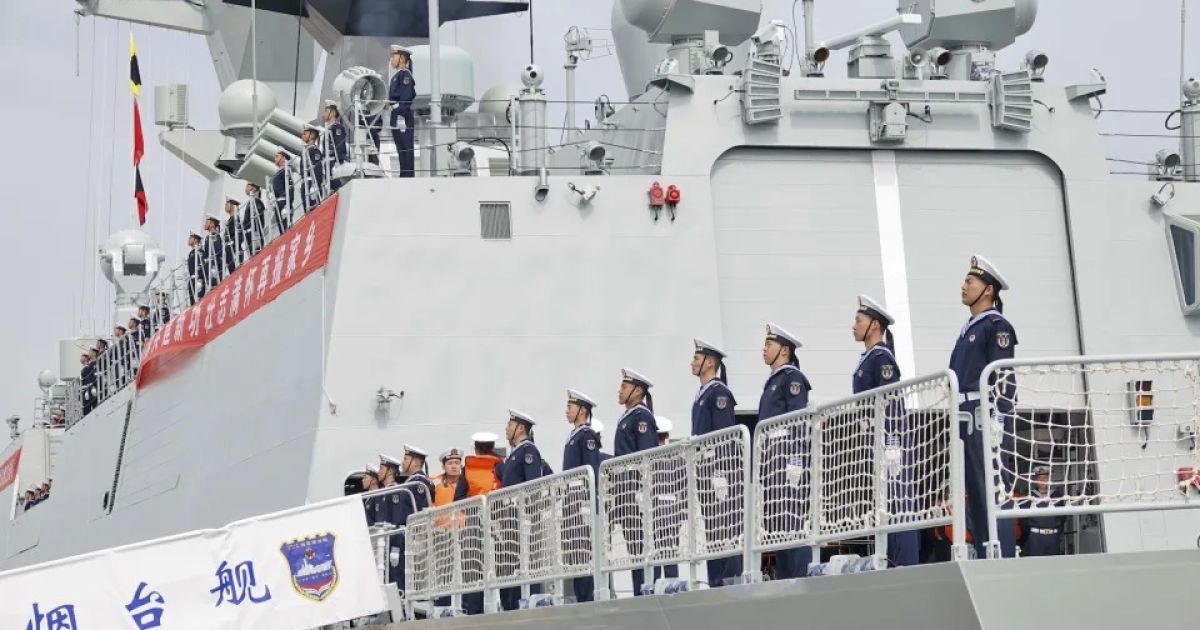China remains the "main long-term challenge" to the existing international order, and there is no evidence that Russia's failed invasion of Ukraine has changed Beijing's views on the "timeframe or methodology" for any potential attack on Taiwan, a leading strategic think tank said ahead of a regional security summit in Singapore.
We offer you an adaptation of CNN's analysis of China's position on Taiwan.
Acute conflict in Europe could also accelerate trends in the Asia-Pacific region towards increased military spending and military capacity building efforts, according to a report published on Friday, June, by the International Institute for Strategic Studies (IISS), which hosts its annual Shangri-La Dialogue in Singapore this weekend.
The war and its echoes in the Asia-Pacific region, as well as the growing infighting between the United States and China, will be the main topics of the security summit, the sidelines of which have long served as a platform for face-to-face meetings among senior security officials.
U.S. Defense Secretary Lloyd Austin, Chinese Defense Minister Li Shangfu, Australian Prime Minister Anthony Albanese and Ukrainian Defense Minister Oleksii Reznikov are expected to attend.
The defense ministers of the United States and China will not meet this year, indicating the depth of the gap in relations between the two countries.
On Thursday, June 1, Austin said it was "unfortunate" that China had rejected a U.S. offer to meet at the conference and warned that a persistent lack of communication could lead to "an incident that could spiral very, very quickly out of control."
This week, Beijing denied claims that it was blocking U.S. defense officials' efforts to communicate, instead accusing the U.S. of creating "artificial obstacles that seriously undermine mutual trust between the two states."
Focus on Taiwan
U.S. and region-wide concerns about China's growing assertiveness have intensified in recent years as Beijing rapidly expanded its navy, militarized islands in the South China Sea, tried to broker security agreements in the South Pacific and stepped up rhetoric around disputed territorial claims.
Those concerns have escalated over the past year as Beijing has twice staged large-scale military drills around the island of Taiwan and refused to condemn Moscow's invasion of Ukraine.
The invasion also drew increased attention to Taiwan as a potential security point in Asia.
Despite significant differences in the geopolitical circumstances of Russia and Ukraine, external perceptions of a powerful aggressor launching an attack motivated by a desire to unite have increased attention to China's intentions towards Taiwan.
China's ruling Communist Party claims that a self-governing democracy is its own, despite never controlling it, and has vowed to unite the island with the mainland by force if necessary.
A report released on Friday, June 2, by the IISS, the annual assessment of Asia-Pacific security written by experts, said there was no evidence that the war in Ukraine had "changed China's thinking about timeframes or methodology" regarding a possible attack on Taiwan.
Beijing's view of Taiwan as an internal challenge has shaped its assessment that China's use of force to retake the island would be completely unlike the war in Ukraine.
However, Chinese military thinkers have analyzed the consequences of Western support for Ukraine and factors that have contributed to Russia's poor military effectiveness, the report said.
It also states that "it is impossible to determine whether China will use force to seize Taiwan at some point in the future," and that Beijing's decision will be shaped not only by "an assessment of military capabilities, but also by consideration of the likelihood of a non-military response by the United States and allies," including potential economic consequences.
"There is no evidence that China has a fixed timetable for invading Taiwan," the report added.
Meanwhile, Beijing's rhetoric on Taiwan was one of several key factors explaining Japan's growing concern about China, the report said.
"Growing confrontation"
According to the report, China continues to develop its capabilities to operate on the high seas away from its ports.
But efforts by the U.S. and its most important regional allies to increase the Navy's funding and readiness "could contribute to shifting the naval balance in their favor."
In recent years, the United States has made a concerted effort to strengthen its security alliances and presence in the region in the face of China's rise.
This included strengthening trilateral cooperation with allies — South Korea and Japan — and renewing the security grouping with Australia, Japan and India, widely seen as countering China's military growth.
Earlier this year, the United States, Britain and Australia agreed to build a combined fleet of elite nuclear submarines.
However, many states in the region prefer to avoid siding with the "growing confrontation" between the US and China, the IISS report said, adding that "there is no region-wide trend towards joining the US" due to economic dependence and fear of escalation.
Beijing has repeatedly claimed that its People's Liberation Army is a defensive force designed to protect world peace and development. Chinese Defense Chief Li is expected to highlight this at a conference where he will also discuss Beijing's vision for regional security.
This is the first time Lee has participated in the conference since taking office as defense secretary earlier this year. In 2018, the United States imposed sanctions on Li over China's purchase of Russian weapons.
Both he and Austin are scheduled to speak at the conference, which runs from June 2-4.
Recall that the United States of America will provide military assistance to Taiwan in case China launches an invasion of the island.
Read also:
- Chinese fighter jet makes 'aggressive maneuver' near US military aircraft: Beijing's surprise statement
- Tensions are growing: China's aircraft carrier passed through the Taiwan Strait, accompanied by two ships
- "Capable of destroying humanity": the world is on the verge of World War III – Kissinger
